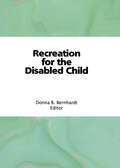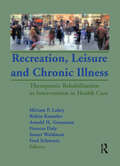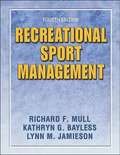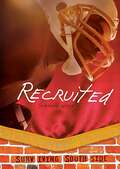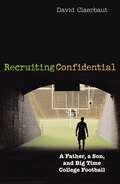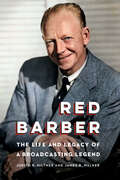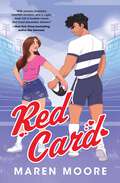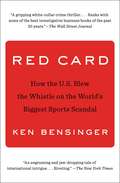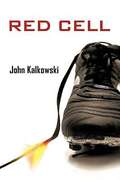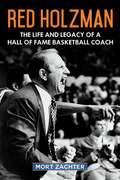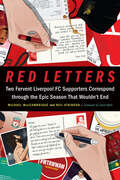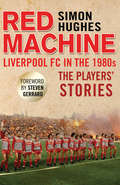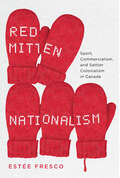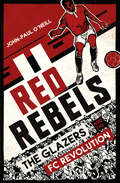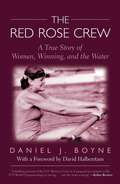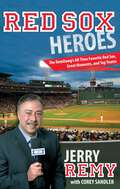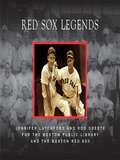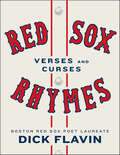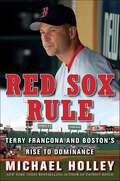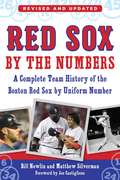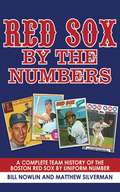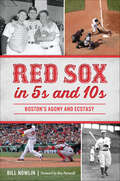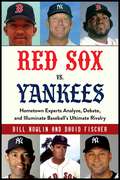- Table View
- List View
Recreation for the Disabled Child
by Donna Bernhardt BainbridgeThis valuable book deals with the recreation activities for the disabled, including skiing, horseback riding, running, camping, water sports, and team sports. Experts examine competitive spirit, training, and the psychological benefits of recreational activities for the disabled child. Program development, evaluation, and instruction are discussed.
Recreation, Leisure and Chronic Illness: Therapeutic Rehabilitation as Intervention in Health Care
by Miriam P. Lahey Robin Kunstler Arnold H. Grossman Frances Daly Stuart Waldman Fred SchwartzIssues of leisure and dying are not often discussed in depth by those in recreation or thanatology. However, Recreation, Leisure, and Chronic Illness bridges the gap between leisure and thanatology. Professionals know that when illness, disability, stress, or poverty threaten the quantity and quality of a person’s life, leisure takes on great meaning. Readers will find in this truly unique book how leisure can be a positive counterforce to the physical and mental diminishments that erode health and work.Contributors to Recreation, Leisure and Chronic Illness explore the philosophy of leisure and how freedom, enjoyment, self-determination, and breaking the set patterns of daily life are central to true leisure, for persons in all walks of life. These authors illustrate the need for leisure in a wide variety of settings and in the face of multiple threats to both the quantity and the quality of life. Readers will find chapters filled with expert theories on how to help clients with limiting conditions realize the fulfillment of their leisure desires, the problem of groups left at the margins of the current health care policy who are also poorly served by the leisure professions, and the inevitable funding dilemma. Specific chapters focus on: improving leisure lifestyles as a crucial first step in rehabilitation the role and importance of recreation in lives of persons with AIDS benefits of recreation programs in senior centers and care centers community-based recreation programs that emphasize preserving existing coping patterns and maintaining daily functioning the ability of recreation to sustain hope for psychiatric patients relationships between leisure education and death education how creative activities--music, dance, art, and creative writing--are used to promote physical mental healthWhile the chapters in Recreation, Leisure and Chronic Illness range from policy issues to specific recreation programs, as a whole they show the healing power of leisure. Professionals and students in both recreation and thanatology fields will find this volume an enlightening approach to promoting healing in those suffering from life-threatening conditions--medical, social, economic, or environmental.
Recreational Sport Management
by Lynn M. Jamieson Richard F. Mull Kathryn G. BaylessThrough Recreational Sport Management, Fourth Edition, you can do the following: -Acquire the foundational knowledge, concepts, and real-world applications to succeed in the field of recreational sport management. -Learn the keys to managing a variety of program delivery systems. -Use more than 60 forms and checklists to ensure smooth day-to-day operations. Recreational Sport Management, Fourth Edition, is back and stronger than ever. This new edition of a classic text has been significantly expanded and improved to keep students up to date in recreational sport management practices and prepare them for solid careers in the field. It also is a practical tool for professionals already working in the field. This latest edition continues to provide comprehensive coverage of the concepts and applications of effective recreational sport programming and administration. And it provides an even broader view of recreational sport management in various settings as well as guidance in professional changes and issues that have surfaced since the previous edition was published. This latest edition includes the following: -New chapters on facility management, equipment, and maintenance -A new chapter on career implications, which offers practical guidance to students pursuing careers in recreational sport management -Expanded chapters on a developmental approach, fitness, informal sport, planning, and finance -A new management model
Recreational Vehicle Cookbook
by Charlotte DawsonIn her RECREATIONAL VEHICLE COOKBOOK Charlotte Dawson has collected some of the favorite recipes of fascinating people she and her husband have met on their travels throughout the United States. While most of the recipes lend themselves beautifully to recreational cooking because of their simplicity they are far from commonplace. Molasses pie, Sabattus stew, swamp cabbage, corn custard, Johnny Johnson's chili concoction and recipes from the Ladies' Auxiliary of the Hatteras Volunteer Fire Department are only a sampling of the many, many unusual recipes you will find between theese covers. Mrs. Dawson has organized her cookbook into regions of America. Represented are New England, the Middle Atlantic States, Southeast, Pacific Northwest and the Southwest. Also included are a host of recipes that are delicious just about everywhere.
Recruited
by Suzanne Weyn"Kadeem is destined for the NFL. Kadeem Jones is a star quarterback for Southside High. He is thrilled when college scouts seek him out. His visit to Teller College is amazing. College cheerleaders pay attention to him. The recruiter even gives him money to have a good time. But then NCAA officials accuse Teller's staff of illegally recruiting top talent. Will Kadeem decide to help their investigation, even though it means the end of the good times? What will it do to his chances of playing college football?"
Recruited (Surviving Southside)
by Suzanne WeynHe's destined for the NFL. Kadeem Jones is a star quarterback for Southside High. He is thrilled when college scouts seek him out. His visit to Teller College is amazing. College cheerleaders pay attention to him. The recruiter even gives him money to have a good time. But then NCAA officials accuse Teller's staff of illegally recruiting top talent. Will Kadeem decide to help their investigation, even though it means the end of the good times? What will it do to his chances of playing college football?
Recruiting Confidential: A Father, a Son, and Big Time College Football
by David ClaerbautThis book provides unprecedented access to the intriguing and sometimes Byzantine world of NCAA Division I football recruiting.
Red Barber: The Life and Legacy of a Broadcasting Legend
by James R. Walker Judith R. HiltnerBorn and raised in rural Mississippi and the even balmier climes of central Florida, Red Barber, at the age of thirty-two, became one of New York City&’s most influential citizens as the play-by-play announcer for the Brooklyn Dodgers. When he arrived in 1939, Barber brought the down-home drawl and idioms of his southern roots to the borough, where residents said they could walk down any street and never miss a pitch because his voice wafted out of every window and every passing car. From his colorful expressions like &“rhubarb&” and &“sitting in the catbird seat&” to his vivid use of similes—a close game was &“tighter than a new pair of shoes on a rainy day&”—Barber&’s influence on his contemporaries and the many generations of broadcasters who followed him cannot be overstated. But behind all the base hits, balls, and strikes lies a compelling story that dramatizes the shifting expectations and roles of a public figure—the sports broadcaster—as he adapted to complex cultural changes throughout the course of twentieth-century American life.Red Barber follows the trajectory of Barber's long career from radio and television play-by-play man for the Cincinnati Reds, Brooklyn Dodgers, and New York Yankees to his work calling college and professional football games, his nine-year tenure as director of sports for CBS Radio, and his second acts as an Episcopal lay reader, sportswriter, and weekly guest with Bob Edwards on NPR&’s Morning Edition. This talented public figure was also a private man committed to rigorous self-examination and willing to evolve and grow under the influence of changing times. When the Dodgers first signed Jackie Robinson and smashed the color barrier in Major League Baseball, Barber struggled to overcome the racism he had absorbed from his culture as a child. But after observing the vicious abuse Robinson endured from opposing fans, Barber became an ardent supporter of him and the many Black players who followed. Barber was also bothered deeply by the strains that his single-minded careerism imposed on his family. He was challenged to navigate longtime family tensions after his only child, Sarah, came out as a lesbian. And his primary role during the later years of his life was caretaking for his wife, Lylah, during her decline from Alzheimer&’s disease, at a time when the ailment was something many families concealed. Ultimately Red Barber traces the career of a true radio and television pioneer who was committed to the civic responsibility of mass media. Barber firmly believed the most important role of a broadcaster was telling the truth and promoting public well-being.
Red Card
by Maren MooreShe&’s All That meets She&’s the Man in this New Adult sports romance about a British bad boy rugby player who&’s forced to start over in America and finds an unlikely ally in the coach&’s daughter when she offers him a deal he can&’t resist. Leaving it all on the field is one thing. Giving his all to love? Terrifying. British bad boy Cillian &“Kill&” Cairney is ruthless on the rugby pitch. After getting a permanent red card from his team in London, the only team that will have him is an Ivy League school in New Hampshire. But the guys hate him, his coach doesn&’t trust him, and worst of all? His starting position is in the hands of his coach&’s fiery, rugby-obsessed, very off-limits daughter. Not only does he have to earn his coach&’s respect, but Kill has to earn Rory&’s—and nothing has ever seemed more difficult. That is, until she approaches him with a proposition that could benefit them both . . . Rory St. James has spent all her life immersed in rugby. Which is . . . part of the problem. She&’s tired of being friend-zoned. She wants to get the guy, and to do that, she needs the frustratingly charming Cillian to teach her. But the more time they spend together, the more lines begin to blur. In a game where trust and loyalty are tested, who will be the winner? Or will love be the final red card?
Red Card: How the U.S. Blew the Whistle on the World's Biggest Sports Scandal
by Ken BensingerThe definitive, shocking account of the FIFA scandal—the biggest international corruption case of recent years, spearheaded by US investigators, involving dozens of countries, and implicating nearly every aspect of the world’s most popular sport, soccer, including its biggest event, the World Cup.The FIFA case began small, boosted by an IRS agent’s review of an American soccer official’s tax returns. But that humble investigation eventually led to a huge worldwide corruption scandal that crossed continents and reached the highest levels of the soccer’s world governing body in Switzerland. In Red Card, Ken Bensinger explores the case, and the personalities behind it, in vivid detail. There’s Chuck Blazer, a high-living soccer dad who ascended to the highest ranks of the sport while creaming millions from its coffers; Jack Warner, a Trinidadian soccer official whose lust for power was matched only by his boundless greed; and the sport’s most powerful man, FIFA president Sepp Blatter, who held on to his position at any cost even as soccer rotted from the inside out. Remarkably, this corruption existed for decades before American law enforcement officials began to secretly dig, finally revealing that nearly every aspect of the planet’s favorite sport was corrupted by bribes, kickbacks, fraud, and money laundering. Not even the World Cup, the most-watched sporting event in history, was safe from the thick web of corruption, as powerful FIFA officials extracted their bribes at every turn. Arriving just in time for the 2018 World Cup, Red Card goes beyond the headlines to bring the real story to light, accompanying the determined American prosecutors and special agents who uncovered what proved to be not only the biggest scandal in sports history, but one of the biggest international corruption cases ever. And it is far from over.
Red Cell
by John KalkowskiWill Conlan is an unconventional thinker. After winning a baseball game with an innovative toss of a rosin bag, he catches the interest of a chief operative of the Homeland Security's Analytic Red Cell. Employing the creative problem solving of philosophers, futurists, and Hollywood movie writers, this intelligence unit is seeking any original ideas about anticipating terrorist plots. As a recent surge of terrorist activity undermines these fresh insights, the operative banks on the notion that Will's youthful imagination, unclouded by the premise of it can't be done, may provide the key insight they need and seeks to secretly exploit Will's unhindered out of the box thinking. Unaware of the magnitude of danger surrounding him, Will uncovers something he wasn't supposed to discover a connection between a television advertisement and a master terrorist plot. Narrowly surviving, he alone foils a bombing at Wrigley Field. Uncertain about the knowledge he now holds, he has to figure out the terrorists' next target. Will just doesn't realize it's him.
Red Holzman: The Life and Legacy of a Hall of Fame Basketball Coach
by Mort ZachterThe Definitive Biography of a Coaching Legend Hanging high atop the world&’s most famous arena, Madison Square Garden, is the name &“Holzman&” and the number &“613.&” That is the total number of wins by former New York Knicks head coach Red Holzman, which is the most in franchise history. While he spent six years as a player and another six as an executive, he&’s most famous for his time at the helm of the Knickerbockers, where he led the team to their only two championships: the first in 1969–70 and the second in 1972–73. He coached the team for fourteen seasons during his illustrious career, was named one of the top ten coaches in NBA history, and was elected to the Basketball Hall of Fame in 1986. Former MSG president Dave Checketts once said, &“Red was the finest human being I&’ve ever known.&” But not much is known about the soft-spoken and private Holzman, as he was the type of person to downplay his own accomplishments. In Red Holzman: The Life and Legacy of a Hall of Fame Basketball Coach, author Mort Zachter has taken on the challenge of sharing this coach&’s incredible story. From humble beginnings as the son of immigrant parents growing up in Brooklyn, Holzman paved a path of excellence at every level. From his time in the Navy to breaking into the NBA and his rise through the coaching channels, author Zachter leaves no stone unturned. With interviews with those who played with, against, and for Red, including Bill Bradley, Phil Jackson, Bob Cousy, and Walt "Clyde" Frazier to name a few, the life of a basketball pioneer—one that has since been held quiet—is shared for the first time.
Red Letters: Two Fervent Liverpool FC Supporters Correspond through the Epic Season That Wouldn't End
by Neil Atkinson Michael MacCambridgeFor those obsessed with Premier League soccer, following your favorite team is a true collective experience, where it is easy to feel as one with thousands of others. It is also an individual one, in which the emotions you feel are your emotions, the experiences you feel are your experiences, and nobody else can perfectly understand. Over the course of the 2019–20 season, two longtime Liverpool FC followers wrote to each other about those emotions and experiences. American writer Michael MacCambridge, living in Austin, Texas, is a devoted Liverpool follower. Five thousand miles away, his friend Neil Atkinson, Liverpool resident and a longtime season ticket holder, is the host of the popular podcast The Anfield Wrap. Each week throughout the historic season, Atkinson and MacCambridge exchanged letters, contemplating Liverpool&’s progress, comparing and contrasting their different perspectives on the club and the sport, meditating on the manner in which their shared obsession for Liverpool works its way into nearly every corner of their personal lives, and discussing the differences between how the game is consumed in the United States and the United Kingdom and the role modern media plays in shaping our views of sport. Their collaboration was both timely and serendipitous, as Liverpool marched toward its first ever Premier League title and its first league title in thirty years, with a charismatic manager and the most entertaining team in the sport. In March, of course, the soccer story was overtaken by the larger story of the COVID-19 pandemic wreaking havoc throughout the world, including sports events. In the course of their correspondence, Red Letters provides a real-time account of the pandemic that threatened the very existence of the season that Liverpool followers had been waiting more than a generation to experience.Red Letters provides a different way to examine the culture of a worldwide sport and development of a soccer season—game by game, in real time, with hopes and expectations tested and altered as the season progresses to Liverpool&’s Premier League championship, with insight from two avid supporters.
Red Machine: Liverpool FC in the '80s: The Players' Stories
by Simon HughesDuring the 1980s, Liverpool Football Club dominated English football, winning six league titles, two European Cups, two FA Cups and four League Cups. In Red Machine, Simon Hughes interviews some of the most colourful characters to have played for the club during that period. The resulting interviews, set against the historical backdrop of both the club and the city, provide a vivid portrait of life at Liverpool during an era when the club’s unparalleled on-pitch success often went hand in hand with a boozy social scene fraught with rows, fights and wind-ups.The players featured here include John Barnes, Bruce Grobbelaar, Howard Gayle, Michael Robinson, John Wark, Kevin Sheedy, Nigel Spackman, Steve Staunton, David Hodgson and Craig Johnston, as well as first-team coach Ronnie Moran. Their candid, ribald and sometimes scathing recollections provide an antidote to the media-coached, on-message interviews given by today’s players and combine to offer a unique insight to this exciting time in the club’s history.
Red Mitten Nationalism: Sport, Commercialism, and Settler Colonialism in Canada
by Estée FrescoWhen Canada hosted the 1976 Montreal Olympics, few Canadian spectators waved flags in the stands. By 2010, in the run-up to the Vancouver Olympics, thousands of Canadians wore red mittens with white maple leaves on the palms. In doing so, they turned their hands into miniature flags that flew with even a casual wave.Red Mitten Nationalism investigates this shift in Canadians’ displays of patriotism by exploring how common understandings of Canadian history and identity are shaped at the intersection of sport, commercialism, and nationalism. Through case studies of recent Canadian-hosted Olympic and Commonwealth Games, Estée Fresco argues that representations of Indigenous Peoples’ cultures are central to the way everyday Canadians, corporations, and sport organizations remember the past and understand the present. Corporate sponsors and games organizers highlight selective ideas about the nation’s identity, and unacknowledged truths about the history and persistence of Settler colonialism in Canada haunt the commercial and cultural features of these sporting events. Commodities that represent the nation – from disposable trinkets to carefully curated objects of nostalgia – are not uncomplicated symbols of national pride, but rather reminders that Canada is built on Indigenous land and Settlers profit from its natural resources. Red Mitten Nationalism challenges readers to re-evaluate how Canadians use sport and commercial practices to express their patriotism and to understand the impact of this expression on the current state of Indigenous-Settler relations.
Red Rebels: The Glazers and the FC Revolution
by John-Paul O’NeillIn 2004, Manchester United could proclaim itself the richest football club in the world, and boasted global commercial appeal alongside more than a decade of success on the pitch. In early 2005, American businessman Malcolm Glazer targeted a leveraged takeover of the club, and it looked set to be plunged into record levels of debt. The fans were furious. If the deal went wrong, it would threaten United's very existence, whilst the Glazers would be able to walk away without it having cost them a cent. Protests in the stands fell on deaf ears – it became increasingly clear that marches and placards wouldn’t make any difference to the Glazer family.In May 2005 the takeover went ahead. In response, one group of supporters took a drastic step: rather than meekly fall into line and – through rocketing ticket prices – help fund the Glazers' aims of cashing in on Manchester United's history and traditions, they took the plunge and formed a new club that started life in the tenth tier of English football. The decision tore Manchester United's fan base apart, and caused ructions that continue to this day.This is the story of FC United of Manchester, the phenomenon born out of a supporter revolution. Established against all odds, its constitution enabled supporters to each own part of the club and have a direct say in how it was run. It also adopted a transparent manifesto and ensured it could never be sold on for profit.However, as generations that have gone before will testify, modern football is now as much a business as it is a sport. How long can a club set up in opposition to a culture of greed stay true to its principles? And in a noble attempt to do so, could it ultimately tear itself apart?
Red Rose Crew: A True Story Of Women, Winning, And The Water
by Daniel BoyneIn 1975, a group of amazing women rowed their way to international success and glory, battling sexual prejudice, bureaucracy, and male domination in one of the most grueling and competitive sports around. Among the members of the first international women’s crew team--and one of the first women’s teams anywhere--were Gail Pearson, the soft-spoken MIT professor who fought equally hard off the water to win the political battles neccessary for her team to succeed; lead rower Carie Graves, a statuesque bohemian from rural Wisconsin who dropped out of college and later became the most intense rower of the crew; and Lynn Stillman, a tiny sixteen-year-old coxswain from California. On hand to guide them was Harry Parker, the legendary Harvard men’s crew coach who overcame his doubts about the ability of women to withstand the rigors of hard training. From their first dramatic bid at the 1975 World Championships to their preparations for their first Olympic Games in 1976, this gripping story of bravery, determination, and indomitable spirit captures a compelling moment in the history of sports and of America.
Red Sox Heroes: The RemDawg's All-Time Favorite Red Sox, Great Moments, and Top Teams
by Corey Sandler Jerry RemyOne of baseball's most insightful commentators picks the 50 greatest Red Sox players of all time.
Red Sox Legends (Images of Baseball)
by Boston Red Sox Jennifer Latchford Boston Public Library Rod OresteThrough a combination of player interviews and historical narrative, Red Sox Legends is a tribute to the great players of the past. This book, a partnership between the Boston Public Library and the Boston Red Sox, is part of an effort to bring Red Sox history to life. Large format prints of most of the images included here are hung inside Fenway Park. The images shown are a sampling of the over 750,000 photographs in the library's collection and the tens of thousands of images in the Red Sox archives.
Red Sox Rhymes: Verses and Curses
by Dick FlavinFrom the voice of Fenway Park comes a collection of sixty-four humorous and nostalgic poems celebrating the Boston Red Sox.A commonwealth institution and popular local television personality who is also the announcer, ambassador, and poet laureate for Fenway Park, Dick Flavin has entertained audiences with his incredible poetic talent and abiding love for the Red Sox before countless home games for more than twenty years. Now, this legendary talent’s poems are gathered together for the first time in this keepsake volume.As a beloved Red Sox insider, Flavin has been privileged to watch history in the making, from the team’s 2004 World Series victory that finally broke its nearly century-long “curse,” to road-tripping with Dom DiMaggio and Johnny Pesky, to witnessing Ted Williams final appearance at the plate. His pithy and comedic verses—including such gems as “The Beards of Summer,” “Long Live Fenway Park,” and his best known, “Teddy at the Bat”—pay homage to the American pastime, New England’s favorite team and players (and the curses and legends that have followed it), and the passionate Nation that has remained faithful through victory and defeat.Illustrated with more than fifty photos from the official Red Sox archives, Red Sox Rhymes honors all of Red Sox fandom and is an essential memento for every BoSox fan.
Red Sox Rule: Terry Francona and Boston's Rise to Dominance
by Michael HolleyThe story of the changing face of baseball and the inner workings of its finest organization After a hundred "cursed" years, the Boston Red Sox rose gloriously to baseball domination. Under the leadership of manager Terry Francona, an extraordinary team of wildly disparate personalities—from the inscrutable Manny Ramirez to the affable David "Big Papi" Ortiz—pulled off two improbable post-season comebacks to make it to the World Series twice in three years . . . and ultimately emerged victorious. In Red Sox Rule, Michael Holley, bestselling author of Patriot Reign, provides a fascinating, insightful, and surprising inside look at how it all happened.With the exclusive cooperation of Terry Francona and stories from the clubhouse and the conference room, Holley reveals the private sessions and the dugout and front-office strategies that have made the Red Sox a budding dynasty, overtaking their archrivals, the powerful New York Yankees, as the American League's elite team.
Red Sox by the Numbers: A Complete Team History of the Boston Red Sox by Uniform Number
by Joe Castiglione Bill Nowlin Matthew SilvermanWhat do Rube Walberg, Mike Nagy, Kevin Millar, and Dustin Pedroia all have in common? They have all worn #15 for the Boston Red Sox. Since 1931, the Red Sox have issued 74 different numbers to more than 1,500 players.In this newly updated edition, Red Sox by the Numbers tells the story of every Red Sox player since ’31-from Bill Sweeney (the first Red Sox player to don #1) to J.T. Snow (#84, the highest numbered non-coach in Sox history). Each chapter also features a fascinating sidebar that reveals obscure players who wore certain numbers and also which numbers produced the most wins, home runs, and stolen bases in club history.Skyhorse Publishing, as well as our Sports Publishing imprint, are proud to publish a broad range of books for readers interested in sports-books about baseball, pro football, college football, pro and college basketball, hockey, or soccer, we have a book about your sport or your team.Whether you are a New York Yankees fan or hail from Red Sox nation; whether you are a die-hard Green Bay Packers or Dallas Cowboys fan; whether you root for the Kentucky Wildcats, Louisville Cardinals, UCLA Bruins, or Kansas Jayhawks; whether you route for the Boston Bruins, Toronto Maple Leafs, Montreal Canadiens, or Los Angeles Kings; we have a book for you. While not every title we publish becomes a New York Times bestseller or a national bestseller, we are committed to publishing books on subjects that are sometimes overlooked by other publishers and to authors whose work might not otherwise find a home.
Red Sox by the Numbers: A Complete Team History of the Boston Red Sox by Uniform Number
by Joe Castiglione Bill Nowlin Matthew SilvermanWhat do Rube Walberg, Mike Nagy, Kevin Millar, and Dustin Pedroia all have in common? They all wore #15 for the Boston Red Sox. Since 1931, the Red Sox have issued 74 different numbers to more than 1,500 players. Red Sox by the Numbers tells the story of every Red Sox player since '31-from Bill Sweeney (the first Red Sox player to don #1) to J.T. Snow (#84, the highest-numbered non-coach in Sox history). Each chapter also features a fascinating sidebar that reveals which players were the most obscure to wear a certain number and also which numbers produced the most wins, home runs, and stolen bases in club history.
Red Sox in 5s and 10s: Boston's Agony and Ecstasy (Sports)
by Bill NowlinThe Boston Red Sox have blown hot and cold over the decades. These lists of Top 5s and 10s cover both the highs and lows of a team that has endured a long history of both joy and sorrow. They won the first World Series ever played and then five more pennants in the next fifteen years. Famously, from 1918 until the magical year of 2004, the Sox endured eighty-six seasons without a championship, although they lost pennants and world championships on the last possible day more times than fans care to remember. Finally, in 2004, they won it all. Loyal fans will always remember the joy of Mo Vaughn's grand slam on opening day in 1998 and will likely never forget the agony of Game 6 in 1986. Through it all, unforgettable names like Buckner, Yaz, Tony C. and Big Papi still resonate in the shadows of Fenway Park. From the greatest pitchers to the worst opening days, author Bill Nowlin recounts the highs and lows of Boston's most celebrated sports franchise.
Red Sox vs. Yankees: Hometown Experts Analyze, Debate, and Illuminate Baseball's Ultimate Rivalry (Classic Sports Rivalries #1)
by David Fischer Bill NowlinTeddy Ballgame or the Great Bambino? Nomar or Jeter? Clemens or Clemens? For more than 115 years, the Boston Red Sox and New York Yankees have been battling it out on the diamond, playing each other over 2,000 times. This heated rivalry has stood the test of time, as one team’s triumph usually means the other’s dismay. While the teams battle on the field, the fans and cities take the rivalry just as seriously. But who’s the best? Which team’s players have the edge? Which team’s squad would reign supreme? If you ask a New Yorker, you’ll get an obvious answer; same with a Bostonian. But what happens when two men from opposite sides of the track sit down to discuss who is the best?Red Sox vs. Yankees pairs baseball historians Bill Nowlin (Red Sox) and David Fischer (Yankees) to discuss who each team’s best position player was and which super team would win in a head-to-head series. Obviously, they won’t easily agree. Obviously, there will be cheap shots and venom spewed back and forth. But in the end, we will have two teams: one of the greatest players and one of each squad’s best year. You can guess that Nowlin will say that the Sox will win, while Fischer is confident that the Yanks will be victorious. But it’s not that easy. Thanks to the help of Action! PC Baseball, we will have a simulation to find out which team would win in a head-to-head battle. Will the All-Star Yankees take the series? Will the Red Sox pummel the best the Bronx has to offer? There’s only one way to find out.
